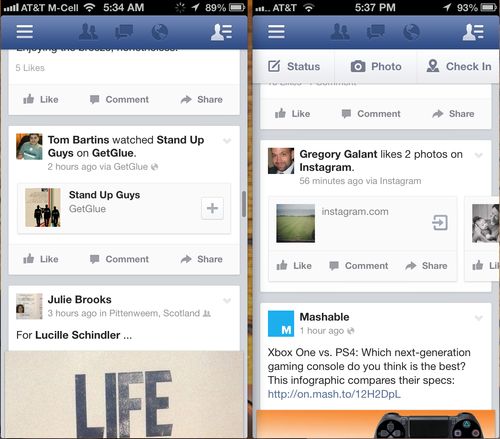Google directs traffic to websites, and that has made the company the most powerful on the web. In social and mobile, the power will reside with companies that direct traffic to mobile apps.
Right now, those companies include Facebook, Twitter, Apple and (well) Google. And right now, the methods of directing traffic to mobile apps are via app stores and native/in-stream advertising (e.g., sponsored posts and promoted tweets) like this one:
Consider these points:
- Mobile users will eclipse desktop users by 2014 (if they haven’t already), according to Morgan Stanley.
- Mobile traffic will eclipse desktop traffic (if it hasn’t already). This already happened in India.
- According to Business Insider, “Time spent on apps dwarfs time spent on the mobile Web, and smartphone owners now spend 127 minutes per day in mobile apps.”
So mobile users/traffic will be greater than fixed users/traffic, and on mobile platforms the users/traffic and time spent will be on apps. Sounds obvious, but consider the implications. Budget to drive downloads and usage should go where the users are—that is, apps.
Driving users to download apps is the more obvious component (especially as app downloads become more seamless), but I believe where it starts to get even more interesting is using platforms like Facebook (via sponsored stories) and Twitter (via promoted tweets and new/forthcoming functionality on cards) to drive (existing) app usage. Already, the percentage of (all) traffic to publishers from social media has increased to 25 percent from 5 percent just a few years ago. It seems natural that social media platforms will drive more and more traffic to mobile web and apps as well. Some examples…
Note that in each of the screenshots above, app activity posts (GetGlue on the left and Instagram on the right) allow users to tap over to the apps that generated that activity post. And not only to the app, but to specific “places” in the apps (the mobile equivalent of clicking over to a specific story at CNN.com rather than just CNN’s homepage). Neither of these posts is sponsored, but they could be. Going a step further, what if the producer of the movie “Stand Up Guys” (in the case of the GetGlue post) wanted to promote that content? Or a local restaurant wanted to sponsor similar content in someone’s foursquare activity post? Starts to get a bit more interesting. And Facebook, Twitter and other mobile platforms won’t be the only beneficiaries. Plenty of room out there for companies like YieldMo, which delivers app download ad units to mobile web content, and other ad tech companies.
Great post from a partner at Greylock here re: mobile monetizing better than desktop. I wholeheartedly agree. Point is, believing mobile is not (as) monetizable as the web is as naive as believing the web wasn’t (as) monetizable as other media. And believe me, people did believe that at one point.
(Disclosure: I’m a pinch long Facebook and supposedly own some shares in Twitter via a secondary market transaction. Oh, and I know a guy or two at YieldMo.)
Image credit: CC by jogen1







